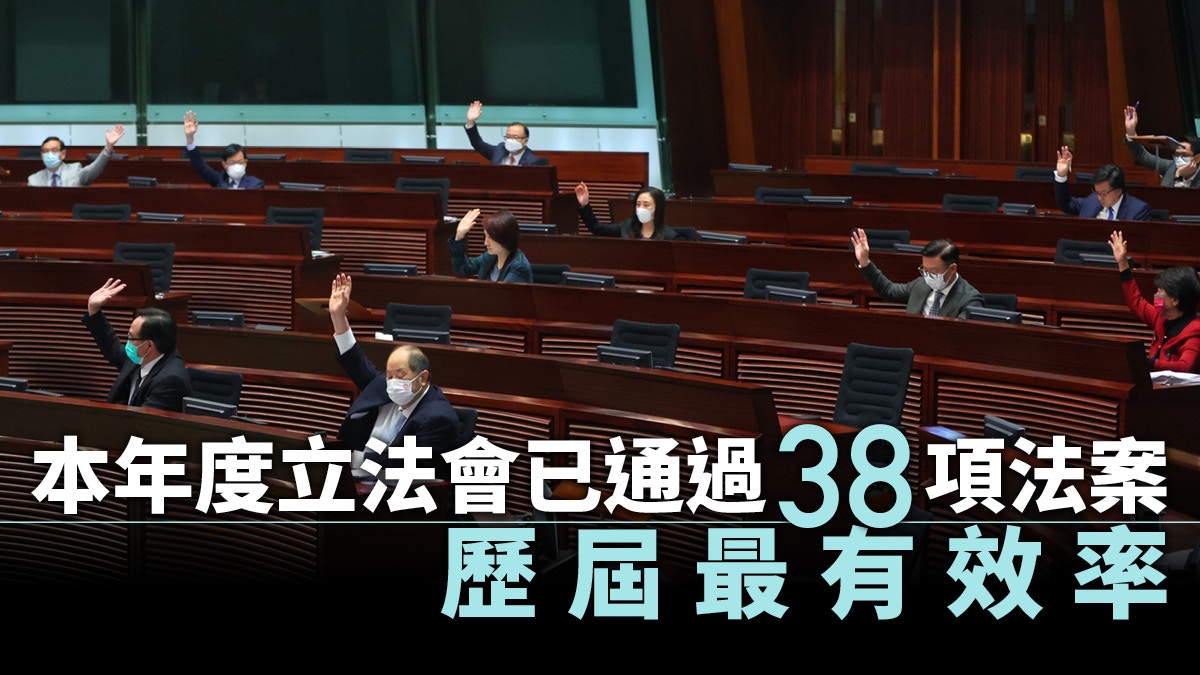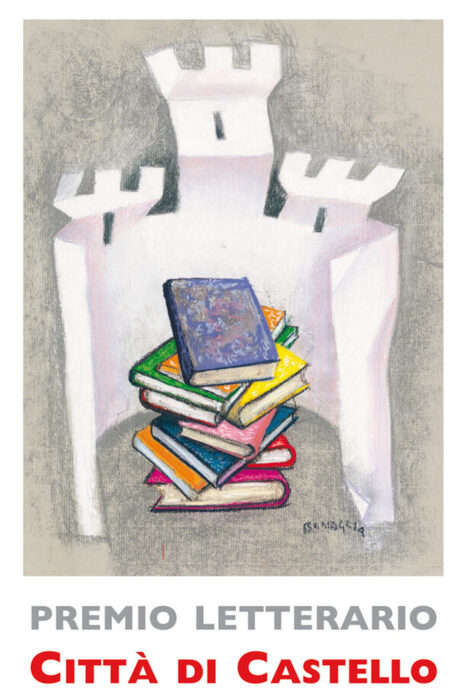This Wednesday (October 27) will hold the last meeting of the Legislative Council, marking an end to the special extension of this year's extraordinary period.
After experiencing the turmoil in 2019, this Legislative Council has a very iconic significance.
The central government no longer tolerates the legislative council being robbed by political ideology. Last year, it directly disqualified four legislators, which eventually caused the collective resignation of pan-democratic legislators.
In the words of the establishment, there were no pan-democrats who were "in the way" this year, and the Legislative Council finally "returned to peace" and resumed its original function.
But does this really mean everything is in order?
With the absence of pan-democratic legislators, the speed at which the Legislative Council approves bills has indeed increased significantly.
During the current term of the Legislative Council, the government has submitted 39 bills and 33 bills have been passed so far, the most in the past two decades.
This can be a good thing. For example, the bill on simplifying professional examinations to attract foreign doctors, which has been blocked for many years, was finally passed the third reading last week.
However, whether members of the Legislative Council perform their duties well does not depend solely on the speed of approval of the bill.
Just as the "Landlords and Tenants (Consolidation) (Amendment) Bill 2021" concerning the management of subdivided rents has just been passed, although it regulates that in the future subdivided rents can only increase by 10% every two years, and tenants can Enjoy the “2+2” tenancy protection for a total of four years, but there is no regulation of the initial rent of the sub-divided housing. Many landlords can steal the rent increase before the ordinance takes effect, which in a disguised form makes sub-divided households forced to pay more rent.
Although there are still obvious loopholes in the motion that can be improved, the final draft was passed with 37 votes in favor, with 2 abstentions and a high number of votes. Some formed members described them as "abstaining with tears."
This does not prevent us from thinking about whether a Legislative Council that only supports the Bill is a good Legislative Council.
We all agree that a parliamentary system such as the Legislative Council is an important part of a modern democratic system. The purpose of its establishment is to supervise the administrative organs and make up for their possible deficiencies.
If the Legislative Council is only dependent on the executive authorities and agrees to everything, even if it is very efficient, it will lose its own existence.
On the other hand, if the parliament confronts the executive in everything, and acts with the mentality of "opposing for the sake of opposition," it will not be a good parliament.
The last meeting of the Legislative Council will be held this Wednesday, (photo by Lu Yiming)
Election does not necessarily lead to true democracy
To many supporters of the pan-democratic faction in Hong Kong, parliament is equal to democracy and election.
Many people believe that as long as there are enough votes to support a parliament, political party, or policy, it must be correct.
Even if some politicians instigate voters’ irrational emotions, take the ideological command in the parliament, talk about "no discrimination of all bills", and make no contribution to improving people’s livelihood, but as long as they have enough support, they will be attracted by some. People are regarded as the form that democracy and parliament should have.
Due to the long-term control of Western theories and the political correctness of the mindset, many people have gradually become superstitious in this form of democracy, forming a deep-rooted idea that "democracy is election."
But if we put aside this preconceived notion and rethink what democracy is, we will find that democracy and elections are not necessarily related.
Even more, elections are not the only boundary between democracy and dictatorship.
For example, no one can deny that Hitler was an evil dictator, but he and the Nazi Party were also elected by the German people.
While the West has been defining China as having no democracy by saying that China does not have the set of elections that the West said, China has recently put forward its own set of democratic theories.
President Xi Jinping mentioned at the work meeting of the Central People’s Congress in the middle of this month, “Whether a country is democratic or not should be judged by the people of this country” and “use a single ruler to measure the world’s rich and colorful political systems... Undemocratic".
The simple summary of these remarks is that democracy is not a fixed system, and whether a system is democratic depends on whether it can embody the spirit of democracy.
Conversely speaking, no matter what kind of system, once it loses this spirit, despite what the West calls "democracy," it is no longer a real democracy.
The democratic spirit aims to improve the quality of life of the general population.
(Photo by Chen Zhuohui)
People's livelihood is the spiritual foundation of democracy
So what is the spirit of democracy?
When discussing this issue, many political theorists always like to talk about some democratic theories, but from the experience and history of the development of democracy in modern mankind, we can clearly conclude that the democratic spirit aims to improve the quality of life of the general people. In other words, "Democracy is It's people's livelihood."
The era when the spirit of democracy arose in Britain was the era when England rose from a medieval island nation to maritime hegemony.
Through the development of ocean trade and colonialism, British merchants exchanged British wool and industrial products for goods from all over the world, including sugar, tobacco, cocoa, coffee from the New World, and spices, cotton, tea, ceramics, and silk from India and China. and many more.
This has greatly improved the quality of life of the British. In the 17th century, the British middle class could drink black tea with sugar and eat cinnamon cake in the afternoon, which is the change brought about by the hegemony of the ocean.
The combination of democracy and mercantilism has become the soil for the growth of British democracy.
Similarly, the United States has experienced economic development after the two world wars, rapidly surpassing Europe, and a large increase in the middle class, which became the foundation of the American system myth.
If Western countries such as Europe and the United States are as poor as backward countries at this time, these countries may not even have the resources to build a theoretical plateau for their own systems. Is anyone still willing to believe in Western democratic systems?
If a system cannot ensure the improvement of people's living standards, no matter how beautiful it is in theory, it will inevitably cause people to question it.
In recent years, the development of advanced regions such as the United States and Europe has stagnated, and capitalism has concentrated wealth in the hands of a few people, causing more and more people in Western countries to distrust their democratic systems.
Western politicians always like to attack China as totalitarian or authoritarian, describing the Chinese model as a threat to democracy.
However, what is equally or even more threatening is that Western systems can no longer respond to the people's desire to improve their lives as they did in the past. It just happened that China found a viable path of its own, which made Western countries label China a threat to the system.
Members of the Legislative Council cannot be reduced to "hand-holding devices", but only agree with the government's motion.
(Photo by Li Zetong)
Hong Kong is at the crossroads of democracy
The people of Hong Kong have been fighting for democracy for many years. Many people describe the present democracy as retrogressive, but it is time for everyone to calm down and think about what kind of democracy Hong Kong needs.
Democracy is not a form or ideology, but the spirit of seeking to improve people's livelihood.
Similarly, the Legislative Council is not only the embodiment of democracy, but it should also exist for the people's desire to improve their lives.
Whether it is "for the contrary" or "holding a mobile device", both extremes are not ideal.
For traditional democrats, it is necessary to realize that improving people's livelihood is the ultimate goal of democracy.
Politicians must have the responsibility to make suggestions for this, instead of pushing the problem to public opinion, or even playing with populism to promote dangerous and illusory political issues in order to win votes.
Ultimately, whether democracy regresses is also related to the quality of life of the people, rather than being measured by the standards set by a certain country.
On the contrary, the establishment should not think that supporting the government in everything and passing all bills is an act of conscientiousness.
Just as the success of the Mainland is based on bringing a better life to the people and lifting the masses out of poverty, the establishment should also take it as its responsibility to improve the quality of life of Hong Kong people.
They should have their own ideas and governance ideas, give full play to their strengths, and make constructive suggestions to the government instead of just "holding up mobile phones."
For example, the current session of the Legislative Council is about to end, and the government has delayed submitting MPF hedging and first-hand vacancy tax and other benefits for the people. The establishment should also take the initiative to urge officials to follow up, instead of letting the government "slam slow" .
The current Legislative Council is coming to an end, and many people have sent messages that the next election and the Legislative Council will bring a new look.
To change the antagonism in Hong Kong, both the democratic and the establishment parties must put aside their inherent political ideologies and re-recognize the importance of improving people's livelihood.
If the election of the Legislative Council is to compete for policy objectives, rather than some empty political discourse, then new changes will be brought about.


/cloudfront-eu-central-1.images.arcpublishing.com/prisa/VS4ONSPOPAREFUKG5AYIRYYO4E.jpg)






